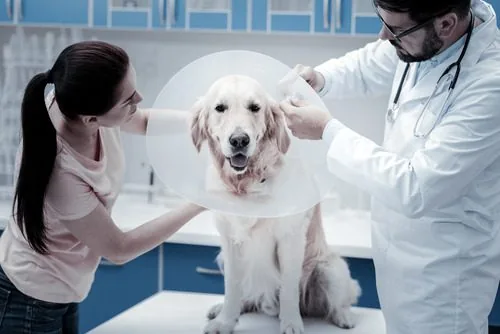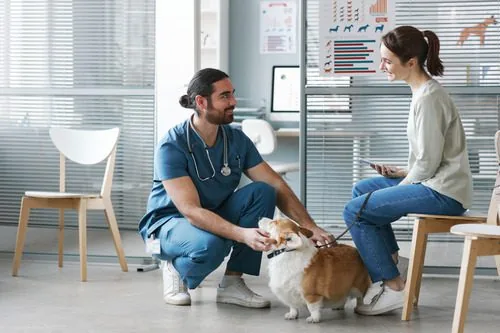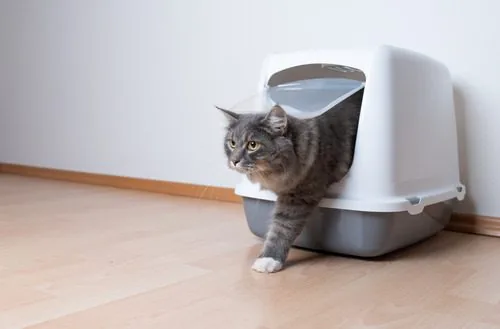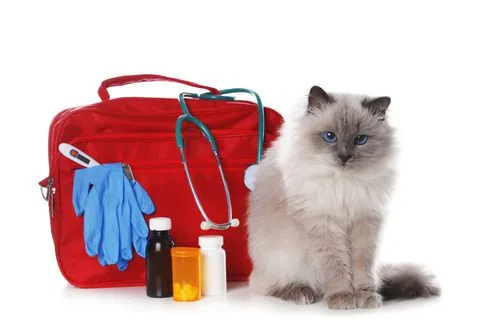CT Scans for Dogs: Everything You Need to Know
CT scans have revolutionized diagnostic capabilities for veterinarians, offering unparalleled detail for identifying and understanding complex conditions. CT scans for dogs is an advanced imaging technology which provides insights that go beyond traditional X-rays, paving the way for more precise treatment plans tailored to your dog’s needs. If your veterinarian has recommended a CT scan for your dog, it’s natural to have questions. Let’s explore how this technology works and the benefits it provides for your dog’s health. For any concerns or to schedule a CT scan for your dog, call Veterinary Healthcare Associates at (863) 324-3340.
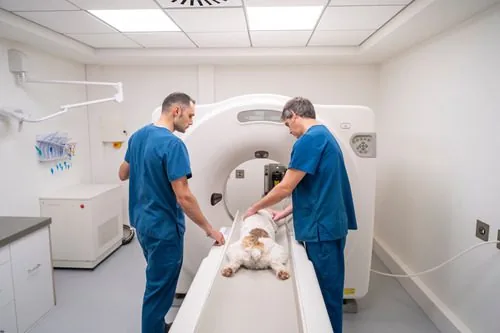
What Is a CT Scan for Dogs?
CT (computed tomography) scans for dogs are advanced imaging techniques that use X-rays to create detailed cross-sectional images of your pet’s body. Unlike standard X-rays, which produce flat images, CT scans provide a three-dimensional view. This level of detail allows veterinarians to detect and evaluate health issues that may not be visible through other diagnostic methods. The technology works by taking multiple X-ray images from different angles, which are then compiled into a comprehensive picture by a computer. This process helps identify abnormalities in areas like the head, spine, chest, abdomen, and limbs. CT scans for dogs are often used to diagnose conditions such as fractures, tumors, and internal organ problems.
Why Do Dogs Need a CT Scan?
CT scans for dogs are invaluable for diagnosing a range of health conditions. Your veterinarian may recommend this procedure if your dog is showing symptoms that are difficult to pinpoint with physical exams or traditional imaging. Common reasons for a CT scan include:
- Persistent lameness or unexplained pain
- Suspected tumors or cancer
- Internal injuries or bleeding
- Complex fractures or joint issues
- Nasal or sinus problems
- Neurological concerns, such as seizures
CT scans provide clarity, enabling your veterinarian to locate the exact issue and plan the most effective treatment. For instance, if a tumor is detected, the detailed imaging helps determine its size, location, and whether it has spread. Similarly, CT scans can reveal subtle fractures that may not appear on an X-ray, ensuring your dog receives the care they need.
How Does a CT Scan Work for Dogs?
During a CT scan, your dog will be placed on a specialized table that moves through the CT scanner, a large, doughnut-shaped machine. The scanner rotates around your dog, capturing X-ray images from multiple angles. These images are then combined to create a 3D representation of the area being examined.
Sedation or Anesthesia
Most dogs require sedation or light anesthesia during the procedure to ensure they remain still. Movement can blur the images and affect the accuracy of the results. Your veterinarian will evaluate your dog’s health to determine the safest option for sedation.
Procedure Length
The amount of time for a CT scan for dogs may vary in length, depending on the area being examined. While the scan itself is quick, additional time may be needed for preparation and recovery, especially if anesthesia is used.
What Are the Benefits of CT Scans for Dogs?
The advantages of CT scans for dogs are significant, particularly for diagnosing and treating complex health issues. Here are some of the key benefits:
- Detailed Imaging: CT scans provide highly detailed images, allowing veterinarians to see internal structures clearly. This precision is especially important for diagnosing conditions affecting the brain, lungs, or musculoskeletal system.
- Non-Invasive Diagnosis: Unlike exploratory surgeries, CT scans are non-invasive and painless. They allow veterinarians to assess internal problems without requiring an incision.
- Early Detection: CT scans can detect health issues in their early stages, improving treatment outcomes. For example, they can identify small tumors or minor fractures that might not be visible through other diagnostic tools.
- Tailored Treatment Plans: With the detailed information provided by a CT scan, your veterinarian can create a customized treatment plan based on your dog’s specific needs. This reduces guesswork and enhances the likelihood of successful outcomes.
What to Expect When Your Dog Gets a CT Scan
If your veterinarian recommends a CT scan, you may wonder what the process entails. Here’s what you can expect before, during, and after the procedure:
Before the Procedure
Your veterinarian will provide instructions to prepare your dog for the CT scan. This may include fasting for several hours beforehand, particularly if anesthesia is required. Be sure to inform your veterinarian of any medications or health conditions your dog has.
During the Procedure
As mentioned earlier, your dog will likely be sedated or anesthetized to ensure they remain still during the scan. Our veterinary team will carefully monitor your dog’s vital signs throughout the procedure to keep them safe and comfortable.
After the Procedure
Once the scan is complete, your dog will be monitored as they recover from the sedation or anesthesia. Most dogs recover quickly, but your veterinarian will advise you on any post-procedure care. You’ll also receive the results of the CT scan, along with recommendations for the next steps.
Are CT Scans Safe for Dogs?
CT scans for dogs are generally safe, but they do involve exposure to low levels of radiation. The benefits of accurate diagnosis typically outweigh the risks, especially for serious health concerns. Additionally, the procedure is performed by trained professionals who prioritize your dog’s safety and comfort. If anesthesia is used, there are some risks associated with the medication, but these are minimal when administered by a skilled veterinary team. Your veterinarian will evaluate your dog’s overall health before the procedure to reduce any potential risks.
Advanced Diagnostics for Your Dog’s Health
CT scans for dogs are a remarkable tool for diagnosing complex conditions and creating effective treatment plans. By offering detailed imaging, early detection, and non-invasive diagnosis, CT scans have become an essential part of modern veterinary medicine. If your dog’s health concerns require advanced diagnostics, Veterinary Healthcare Associates in Winter Haven, FL, is here to help. Our experienced team is dedicated to providing compassionate care and accurate diagnoses. To schedule a consultation or learn more about CT scans for dogs, call us at (863) 324-3340 today.
Recent Posts
Laparoscopic Spay vs Traditional Spay: What’s Best for Your Dog?
Laparoscopic Spay vs Traditional Spay: What’s Best for Your Dog? When comparing a laparoscopic spay vs traditional…
Laparoscopic Spay: Everything You Need to Know
Laparoscopic Spay: Everything You Need to Know Laparoscopic spay, also called a “minimally invasive spay,” is an…
When is Dog Diarrhea an Emergency?
When is Dog Diarrhea an Emergency? Dog owners know all too well that occasional digestive upset isn’t…
Is Cat Constipation an Emergency?
Is Cat Constipation an Emergency? Cats are often private about their habits, especially when it comes to…
Feline Emergencies: Warning Signs Your Cat is Crying for Help
Feline Emergencies: Warning Signs Your Cat is Crying for Help Cats have a reputation for being independent,…
About Veterinary Healthcare Associates
Veterinary Healthcare Associates in Winter Haven, FL, was established over 30 years ago as Maxwell Animal Clinic by Dr. John Maxwell. Maxwell Animal Clinic was a one-doctor general practice offering preventive care, dentistry, and standard surgical services to the community. As the years passed, Maxwell Animal Clinic evolved into a thriving 10-doctor general, specialty referral, and emergency veterinary practice.

